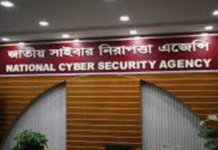
The consumer rights groups and business operators on Thursday demanded an end to the government’s interference in the price fixing process of liquified petroleum gas (LPG), reports news agency UNB.
They urged for determining a single regulator to play the role of watchdog in ensuring a fair price of the LPG at the consumer level by protecting both the interest of the consumers as well as the business operators.
They made the call while participating in public hearing convened by the Bangladesh Energy Regulatory Commission (BERC) at BIAM Auditorium in the city.
BERC was forced by a High Court order to hold the public hearing to avert a content motion filed by the Consumers Association of Bangladesh (CAB).
BERC chairman Abdul Jalil presided over the hearing session while other members of the commission were present.
The technical evaluation committee suggested fixing the price of a 12kg LPG container of private company at Tk 954 as highest and Tk 758 as lowest against the current price of Tk 1,259. It recommended fixing price of state-owned company’s 12.5kg container at Tk 902 through giving a cross subsidy of Tk 300 from the current price Tk 600.
Although the TEC made the recommendations, the BERC will take the final decision and fix the price.
Prices of 24 items are being determined by the energy and mineral resources division. This creates a conflict of interest as the state-owned companies are doing the same business of the items
State-owned LP Gas Limited managing director Fazlur Rahman and also top executives of six other leading private LPG companies — Omera, Jamuna, Uni, Energypac, Beximco, and Promita — made their joint presentation in the hearing while BERC deputy director Quamruzzaman presented the TEC report.
Energy expert and CAB adviser professor M Shamsul Alam, Communist Party of Bangladesh’s Ruhin Hossain Prince, Bangladesh Mobile Phone Consumers Association’s Mohiuddin Ahmed, among others, took part in the public hearing.
“Interference of energy division in LPG price fixing process is clear violation of the BERC Act, 2003 which gives a clear mandate to the energy watchdog to fix the prices of 25 petroleum items including this LPG,” said professor Alam.
He said the regulatory body was forced to hold the public hearing to re-fix the LPG price after facing a contempt of court proceeding following a writ petition by the CAB.
“But still, prices of 24 other items are being determined by the energy and mineral resources division,” he said adding that this creates a conflict of interest as the state-owned companies are doing the same business of the items.
Professor Alam also opposed the recommendations of TEC to raise the price of 12.5 kg LPG container of the state-owned companies from current Tk 600 to Tk 900.
It will be unwise and unjust to raise the LPG price of state-owned LPG Company Limited on the ground of bringing rationality between the public and private companies’ product prices, he said.
If it happens, the state-owned company’s LPG will face the similar fate of state-owned sugar mills as those remains unsold, he added.
Rather, if the BERC wants to bring a rationality in the prices, it should take measures to reduce the price of the LPG sold by private companies, he argued.
State-owned LGP Company Limited’s managing director Fazlur Rahman said that his company produces LPG from local condensates of gas fields.
He also disagreed with the proposal of the TEC to raise the LPG price of the company.
Private LPG operating company representatives said that they have to import the entire LPG from abroad through small vessels due to lack of adequate navigation facilities for which they count a huge cost of over $100 as freight charge which ultimately pushes up their costs.
They said giving an LPG container to consumer free of cost also raises their prices of the product. They also alleged that they have to take licenses from 24 authorities to set up an LPG business.
Concluding the hearing, BERC chairman Abdul Jalil said all the concerned parties are requested to send their additional proposals and arguments by 21 January. After analyzing those, the commission will take the final decision within a given timeframe set by the BERC Act.









